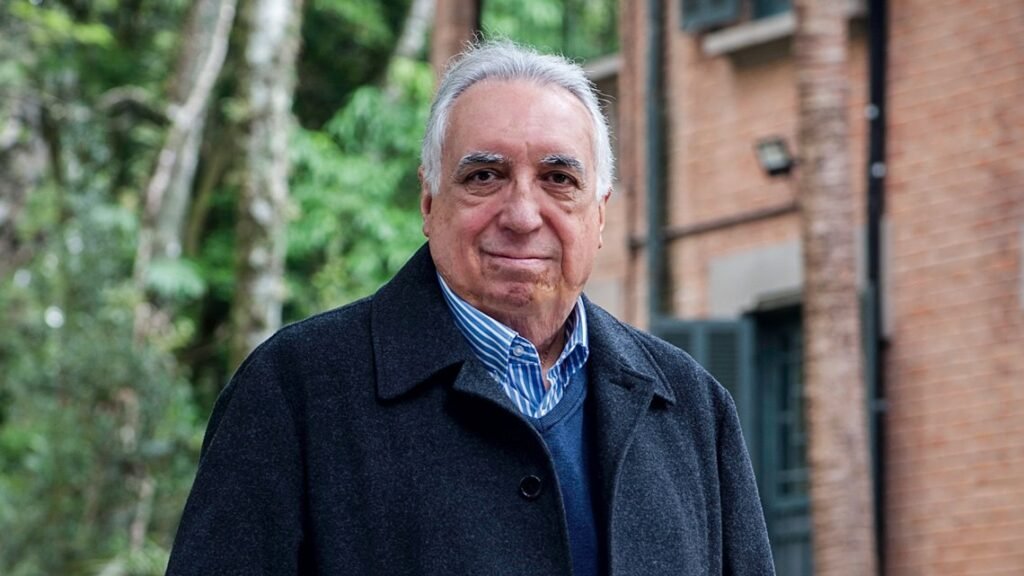The governor of São Paulo, Tarcísio de Freitas, has appointed hematologist Carmino Antonio de Souza as vice president of the São Paulo Research Foundation (FAPESP). Souza, who is a full professor in the Department of Internal Medicine at the School of Medical Sciences of the State University of Campinas (FCM/Unicamp) and principal investigator of CEPID CancerThera, has a solid professional career in science and public administration, encompassing nearly 50 years of dedication to medicine, scientific research, and healthcare management.
The appointment, published in the Official Gazette of the State of São Paulo on October 4, 2024, is a recognition of Souza’s significant contribution to the advancement of science in the state. His role will be essential in further driving cutting-edge research development in Brazil. This marks a new chapter in his history with the foundation, now holding a position of greater influence in the strategic direction of research and innovation policies. At FAPESP, Souza had already served as a member of the Superior Council since 2022, collaborating in the formulation of policies to promote scientific research in São Paulo.

“I feel an enormous responsibility, of course, and great honor to have been chosen by my peers in the first place, and having this nomination ratified by the state governor,” says Souza. He will share this responsibility with fellow hematologist Marco Antonio Zago, appointed president of the foundation, with whom he already shares a long and prolific partnership history. Both will serve a three-year term.
Working in an exemplary foundation
FAPESP is one of the main research funding agencies in Brazil, playing a central role in the scientific and technological development of the state of São Paulo and supporting innovative projects in all fields of knowledge. The new vice president explains that the foundation’s challenges are vast, as in addition to promoting and supporting research, innovation, development, and education policies at all levels — including scholarships for researcher training from undergraduate research to post-doctoral studies — there is the responsibility of stimulating and financing all research and innovation activities, both in academia and in the productive sector.
Souza states that his perspective is to contribute to all these activities and maintain FAPESP at the highest level it holds among state research support foundations. “I consider it important for us to continue defending research, ensuring that FAPESP remains an example of decades of support for research and innovation, as well as assistance in all productive activities that can be developed in our state or through national or international cooperation,” he says.
The appointment also reaffirms the importance of ongoing dialogue between academia and government for strengthening research and places Souza in a strategic position to lead initiatives that can continue transforming scientific research into practical innovations for healthcare and other essential sectors.
“I sincerely hope to meet the expectations of the Superior Council and the Technical-Administrative Council of FAPESP, the Government of the State of São Paulo, and the State Department of Science, Technology, and Innovation, but most importantly, I hope to meet the expectations and trust that the community of researchers, professors, and innovation professionals place in my work,” he emphasizes.
A solid career in research, innovation, and health management
Throughout the years, Carmino Antonio de Souza’s work has been marked by a commitment to scientific excellence and transforming research into tangible benefits for society. A graduate in Medicine from the State University of Campinas (Unicamp), he specialized in Hematology and Oncology and founded the Hemocenter/Unicamp, a national reference in the treatment of hematological diseases. As a professor at FCM/Unicamp, where he is currently a full professor, he has played a fundamental role in training new doctors and researchers.
In addition to his academic career, Souza has extensive experience in associations, public administration, and health management. He served as Secretary of Health of the State of São Paulo (1993-1994) and of Campinas (2013-2020), as well as Executive Secretary of the Department of Science, Technology, and Innovation of the State Government of São Paulo (2022), positions in which he stood out for implementing public health policies.
He was president and is currently scientific director and member of the Brazilian Society of Hematology, Hemotherapy, and Cellular Therapy (ABHH). He is also a member of the American Society of Hematology (ASH), the European Hematology Association (EHA), and the Italian-Brazilian Association of Hematology (AIBE), of which he was one of the founders. He is the current president of the Board of Trustees of the Butantan Foundation.
Text: Romulo Santana Osthues





